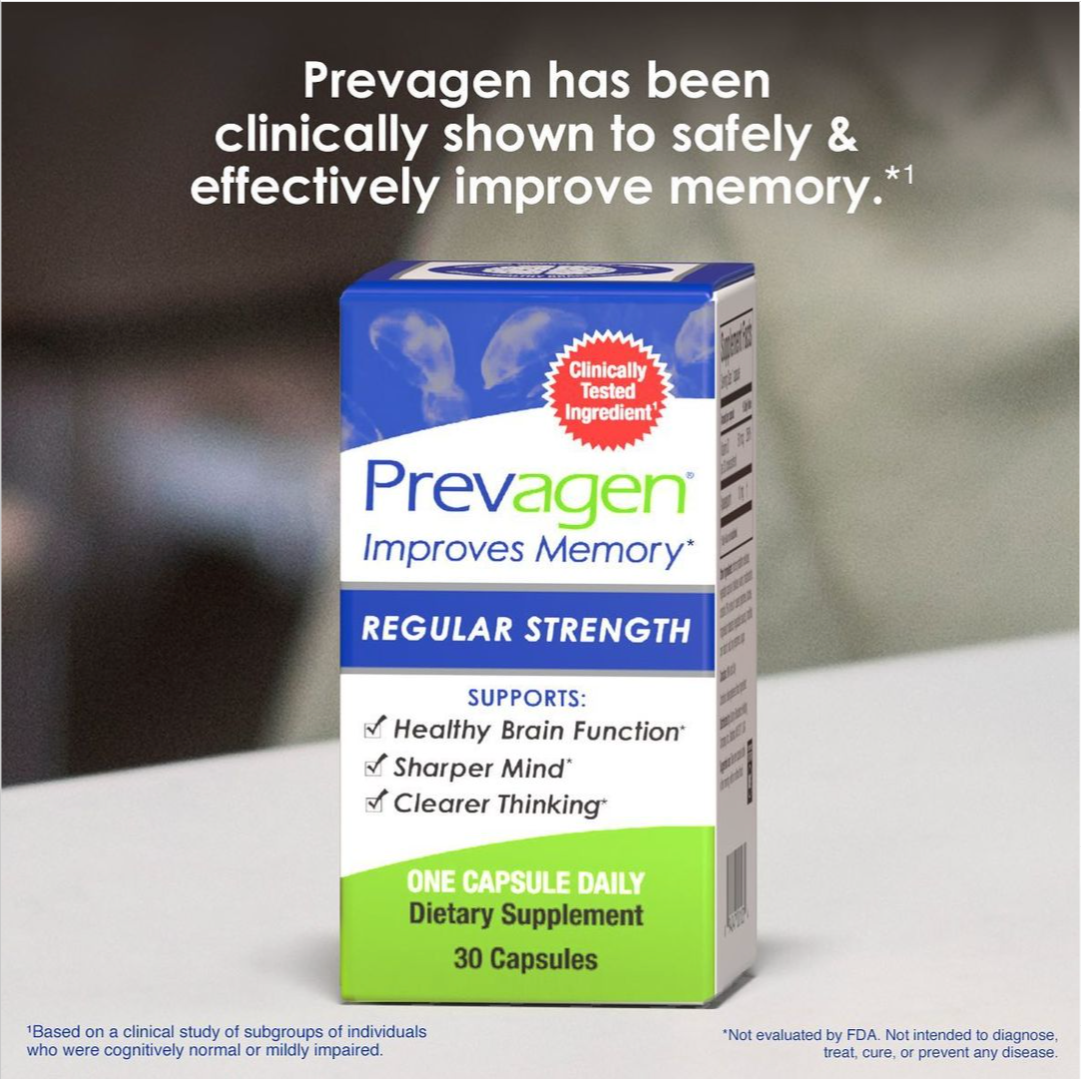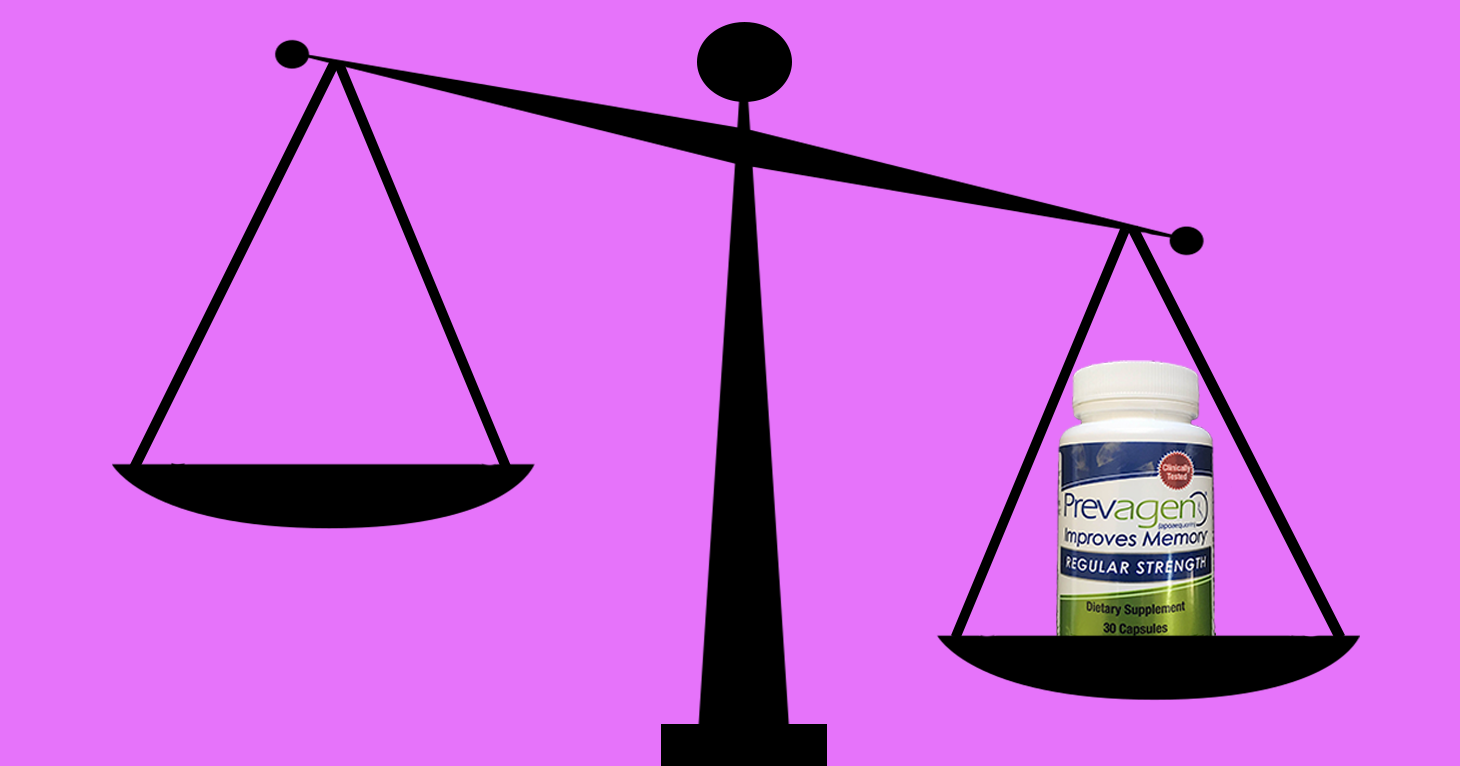
Snubbing FTC, MLM Claims It Can Prevent and Treat COVID-19
Of all the companies exploiting the pandemic, doTerra stands out as a steadfast recidivist.
Eight years after TINA.org alerted regulators, supplement ads continue to convey deceptive and misleading memory improvement claims.
| Bonnie Patten
For more than 10 years, Prevagen has been pursued by various federal and state regulators, and yet deceptive ads for the alleged memory enhancing supplement still appear on television and blanket the internet. To be clear, Prevagen has admitted that its product works no better than a placebo and that there is no evidence its synthetic protein pill (which is rapidly digested in the stomach and broken down into amino acids and small peptides just like any other protein) can cross the human blood-brain barrier. But despite these basic facts, Prevagen is still for sale claiming to be a supplement that can “effectively improve memory.”

It is estimated that 6.7 million Americans age 65 and older are currently living with Alzheimer’s disease – a number that is expected to increase over time. In fact, according to the Centers for Disease Control and Prevention, “[b]y 2060, the number of Alzheimer’s disease cases is predicted to rise to an estimated 14 million people, with minority populations being affected the most.” Given these statistics, it is no wonder many seniors worry that forgetfulness is a first sign of Alzheimer’s and are understandably desperate to do something about it. And companies like Quincy Bioscience, the company that makes Prevagen, are all too happy to take advantage of this susceptible population’s fears and insecurities.
This is clearly evident in the FDA warning letter that the company received more than a decade ago, in October 2012, asserting that the company was:
In its letter the FDA also quoted promotional testimonials that the company was using to sell Prevagen that implied the product could treat and/or prevent Alzheimer’s:
“My mother died of Alzheimer’s disease…. I thought it was happening to me being too forgetful and so on. When I heard the commercial and them talking about this [Prevagen], it’s the first product that I’ve ever ordered this way…. It proved to be very helpful…in a very short time. This is the first product I guess I’ve probably ever used that I could absolutely say it’s miraculous for the short time I’ve been on it. I know my thinking and everything is more clearer and so on, just like it says” (testimonial from Rebecca R. from Phoenix).
“Prevagen will restore for you the lost protein so that you can gain your dignity back…. Alzheimer’s disease is a heartache on any family. Dementia is tough to be around people that have dementia, let alone have it yourself. Prevagen gives you back your dignity and gives you back the proteins that are so precious that we use. No side effects whatsoever, doesn’t matter what drugs you’re on, this is a safe natural supplement” (Dr. Jan McBarron video at 1:16).
Had the FDA done its job at that time, it is possible this is where our story would end. But alas, Quincy Bioscience essentially ignored the FDA, and the agency has done nothing about it since then despite being reminded of its need to take further action by TINA.org.
Indeed, we here at TINA.org have used almost every arrow in our quiver to try to stop the deceptive marketing of Prevagen, including:
But the deceptive ads continue. It appeared possible that Quincy’s scheme would finally end when the FTC (after TINA.org filed a complaint with the agency in 2015) and the state of New York sued Quincy for deceptive marketing in 2017, but here we are eight years later and the case is still limping along.

While Quincy has toned down its deceptive and misleading health claims over time, it is still making flawed and unsupported memory improvement claims. Gone are the claims that Prevagen can help prevent dementia and Alzheimer’s but its fundamental and very false premise that Prevagen improves memory remains. Quincy tries to skirt around the fact that its 2011 study failed to prove that Prevagen improves memory by using an easy to miss, fine print disclosure that states its memory improvement claim is “[b]ased on a clinical study of subgroups of individuals who were cognitively normal or mildly impaired.” Not only is it preposterous to think that consumers will understand what this statement means but the disclaimer also hides a fatal flaw.
Because Quincy’s study did not prove that Prevagen worked better than a placebo, its hired team of researchers went hunting through the data to see if they could find something to support Quincy’s bold marketing message. To do so, the researchers conducted more than 30 post hoc analyses. In post hoc analysis, multiple comparisons are made after the experiment has been designed and the data collected. The more comparisons that are made, the more likely one is to find desired (but specious) results. This is why such aggressive use of post hoc analysis is derogatorily referred to in the scientific community as data dredging or P-hacking. Using this technique, the Quincy researchers were able to find three out of nine tested tasks apparently showing a statistically significant improvement in two overlapping subgroups —a classic case of elevating likely false positives to the status of a proven claim. Armed with these unreliable and limited data, Quincy has mounted a full-throttled marketing campaign with claims that Prevagen is clinically shown to improve memory.
Quincy’s marketing never fully informs consumers of the severe limitations of its findings. Instead, Quincy’s advertisements and marketing material continue to convey deceptive and misleading memory improvement claims. Quincy’s selective touting of some post hoc analyses and nondisclosure of contrary findings from its study violates the law. But for now, the company will continue to deceive and exploit seniors because its dishonest practices are simply too profitable for the company to resist, and it has the resources to fight battles of attrition with enforcement authorities that are either unwilling to engage or moving at a glacial pace.
Of all the companies exploiting the pandemic, doTerra stands out as a steadfast recidivist.
Pending class-action settlement leaves consumers behind.
Comment made by TINA.org executive director, Bonnie Patten at the FDA’s public meeting on Responsible Innovation in Dietary Supplements held on May 16, 2019. Thank you for the opportunity to…

